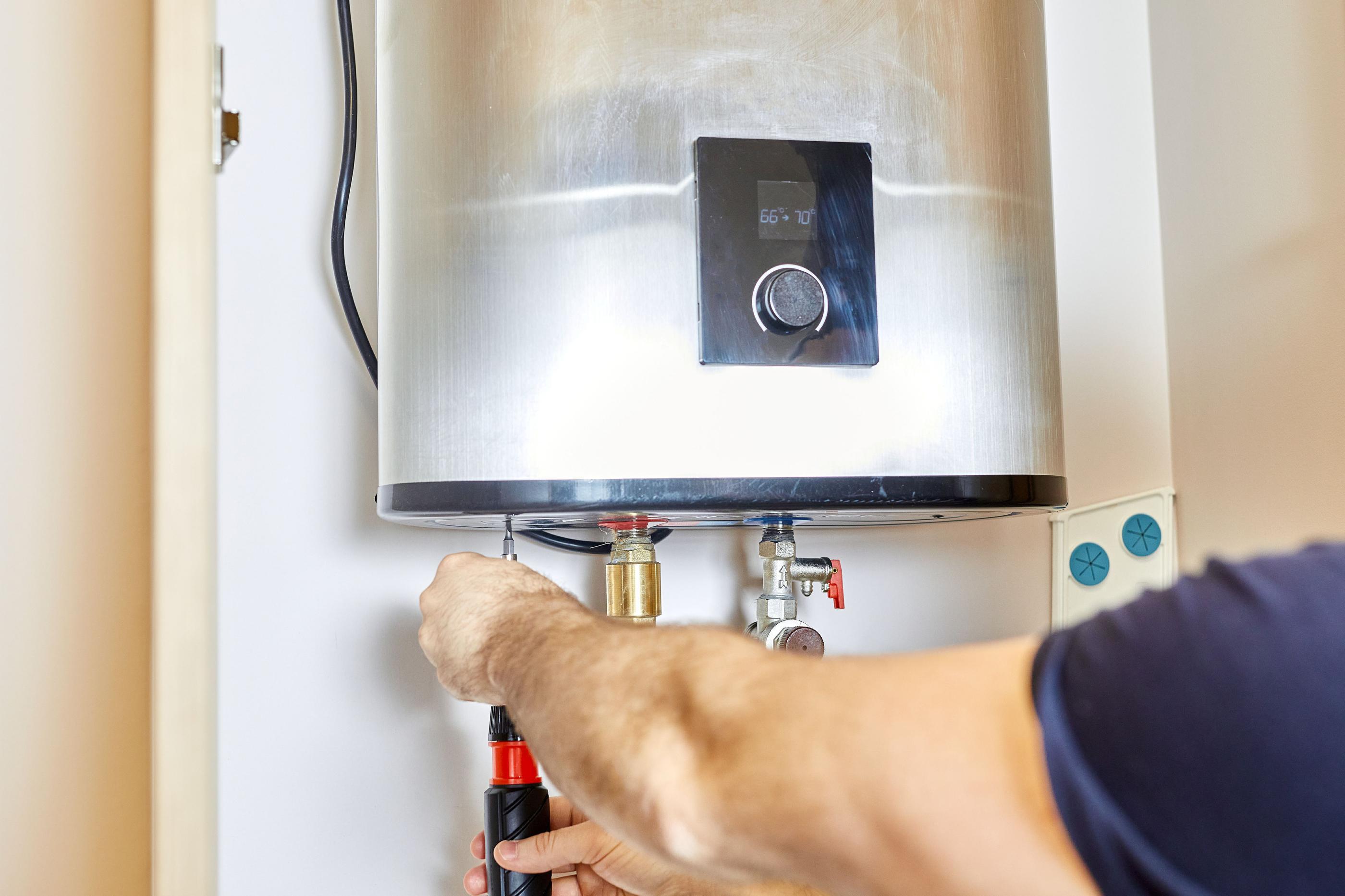
Many homeowners in older homes still have tank water heaters. These tanks can run out of hot water mid-use, forcing you to wait for the next batch to heat up. If you’re ready for an upgrade, switching to a tankless water heater can eliminate that frustration. At Benjamin Franklin Plumbing® in Ann Arbor, MI, we’ve helped homeowners replace bulky tanks with a more efficient way to keep hot water flowing on demand.
Get Hot Water When You Need It
Tank-style water heaters can make you wait for hot water, both when the stored water runs out and while the unit reheats. Tankless systems heat water instantly as it flows through the unit, so there’s no “recovery” time between uses. While you may still wait a few seconds for hot water to travel through the pipes to your tap, the heating process itself begins immediately. Whether it’s a busy morning or laundry day, you won’t be stuck planning around a tank refill.
Say Goodbye to Running Out Mid-Shower
One of the biggest frustrations with traditional tanks is running out of hot water mid-shower. Once the tank’s supply cools down, it takes time to reheat — meaning cold water and a bad start to your day. A tankless model doesn’t store water in bulk. It heats water as it flows, so you’re not limited to 40 or 50 gallons at a time. Even if multiple people are showering or doing dishes at the same time, hot water keeps flowing as long as water is running.
Use Less Energy Without Changing Habits
Tank water heaters cycle on and off all day to keep stored water hot, even when you’re not using it — wasting energy through what’s called standby heat loss. Tankless systems skip this step by only heating water when you turn on a tap. That means they don’t burn gas or use electricity when there’s nothing to heat. Many homeowners see lower energy bills after switching, especially if their household uses hot water at irregular times.
Free Up Floor Space for Things That Matter
A traditional water heater can be as tall as you and about as wide as a large trash bin, taking up valuable space in your basement, closet, or utility room. A tankless unit is much smaller, mounts on the wall, and often sits high enough to leave space below for storage. This not only opens up your home but also makes it easier for a technician to access valves and pipes for service.
Reduce Sediment Build-Up and Maintenance Stress
Traditional tanks constantly fill, heat, and store water, which allows minerals (especially in hard water areas) to settle and build up inside the tank. This sediment can reduce efficiency, create rumbling noises, and even lead to tank failure. Tankless water heaters don’t store large volumes of water, so sediment accumulation is reduced — though mineral scaling can still occur and should be removed during routine maintenance.
Get More Years Out of Your Equipment
The average tank water heater lasts about 8–12 years before corrosion or leaks force replacement. A tankless model can last 15–20 years with proper care. Because they’re not constantly heating and reheating water, their components tend to wear more slowly. If you plan to stay in your home long-term, this extended lifespan can make the investment more cost-effective over time.
Keep Water Fresher for Household Use
Stored water can pick up minerals or rust from the inside of a tank, sometimes causing cloudy or discolored hot water. Tankless water heaters heat water as it flows, so there’s no large storage area where this build-up can occur. While you should still follow safe water practices, a tankless unit can provide fresher, cleaner hot water for showers, laundry, and dishwashing.
Lower Your Risk of Major Leaks
When a tank water heater fails, it can leak or burst — releasing dozens of gallons of water onto your floor. This can cause costly damage to flooring, drywall, and personal belongings. Tankless systems don’t store water in a tank, so the risk of this kind of flooding is dramatically reduced. While small leaks can still develop at connections or fittings, there’s no large reservoir of water to spill.
Make Your Home Feel More Modern
Because tankless systems are small, wall-mounted, and clean-looking, they can make a utility area feel less cluttered. This is especially appealing in smaller homes or condos without a basement to hide a bulky tank.
Get Your Tankless Water Heater Today
Upgrading to a tankless water heater is about more than endless hot water — it’s about efficiency, space, and peace of mind. At Benjamin Franklin Plumbing®, we install and maintain tankless systems so you can enjoy reliable hot water for years to come. We also offer water softeners, sump pumps, and leak detection services to keep your plumbing running at its best. Contact us today to learn more or schedule your installation.

 Your Privacy Choices
Your Privacy Choices